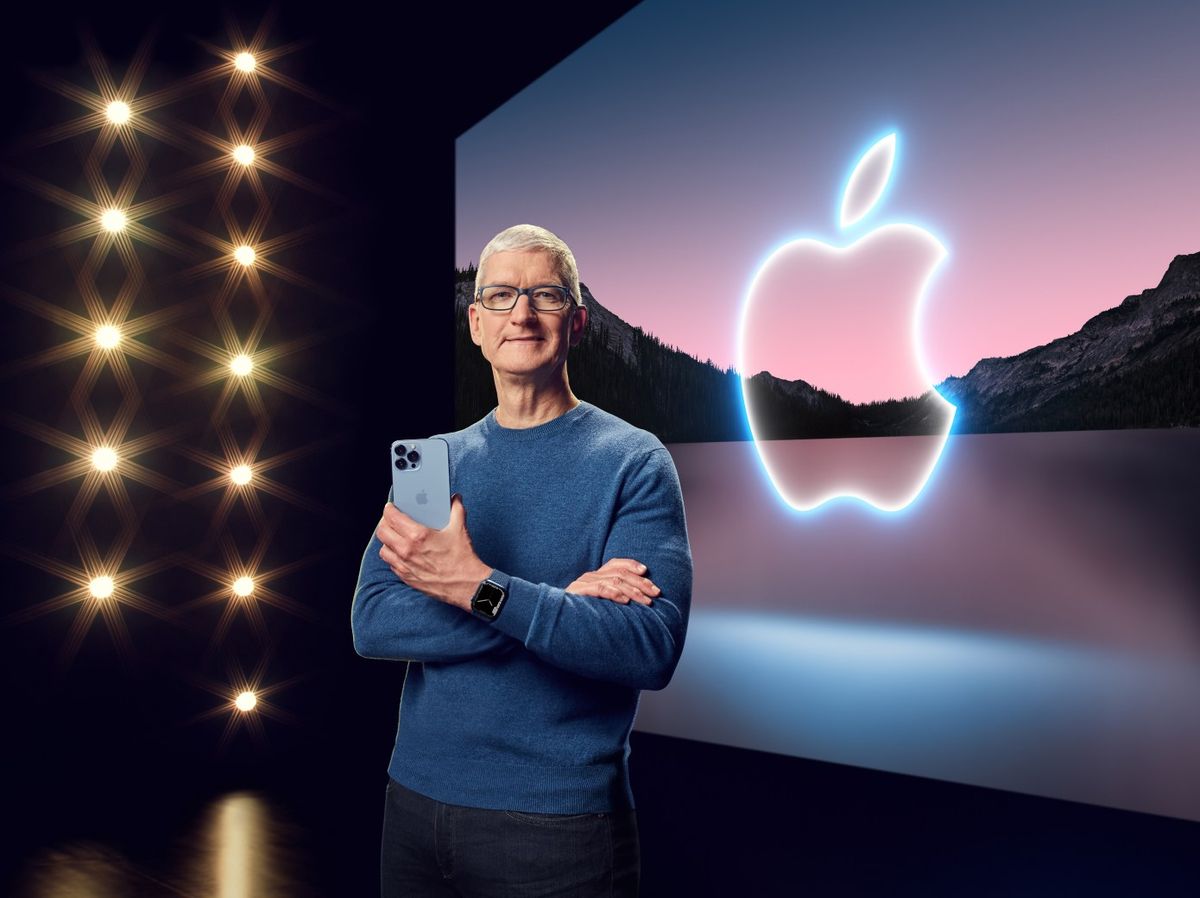How Apple is leading the way in AI innovation: A look at the company's latest developments and plans

Apple is often criticized for falling behind competitors like Google, Amazon, and Facebook in the realm of artificial intelligence (AI). Apple's CEO, Tim Cook, has refuted this claim in recent remarks and outlined some AI-powered features that set the company's products apart. Cook also affirmed that Apple is developing generative AI technology, which could have a significant influence on how people communicate, create, and enjoy entertainment in the future.
Generative AI: What is it?
The goal of the AI field known as "generative AI" is to create new information from preexisting data, including text, photos, audio, and video. Generative AI, for instance, can be used to create music, stories, paintings, and speech synthesizers. Additionally, existing content can be enhanced or modified using generative AI by adding captions, effects, or filters.
One of the most well-known and successful examples of generative AI is the OpenAI language model GPT-3, which can generate varied and coherent texts on nearly any topic given a few keywords or prompts. Numerous applications, including chatbots, summarizers, translators, and content generators, have used GPT-3.
But there are also dangers and difficulties associated with generative AI, including social, legal, and ethical ramifications. Deepfakes, spam, and propaganda are a few examples of fake or misleading content that generative AI produces. Concerns concerning authorship, authenticity, and intellectual property rights may also arise due to generative AI. Thus, the development and application of generative AI need to be done carefully and responsibly.
What AI-based products does Apple make?
Although Apple has long included artificial intelligence (AI) into its products, it doesn't always label them as such. Apple, on the other hand, is more concerned with the advantages AI brings to consumers and the user experience. For instance, Cook listed a few of the new AI-powered iOS 17 features:
- Personal Voice: With the help of this feature, users can record a voice that is unique to them and use it for voice or text-to-speech messages. This feature is beneficial for those experiencing speech loss as a result of different medical conditions. Users must spend fifteen minutes reading text prompts into their device's microphone to create a personalized voice. After that, the audio is locally processed on their Mac, iPad, or iPhone using machine learning technologies, enabling them to produce their voice.
- Live Voicemail: This feature displays a live voicemail transcription as it's being recorded in real-time. It allows users to read the message without having to listen to it or call back.
Cook also highlighted a few AI-powered life-saving features found on the Apple Watch and iPhone, including:
- Fall Detection: If a user is not responding after a fall, this feature will automatically contact emergency services.
- Crash Detection: If a user is not responding after an automobile accident, this feature will automatically contact emergency services.
- ECG: This function assesses the user's heart's electrical activity and notifies them of any anomalies, such as atrial fibrillation.
What plans does Apple have for generative AI?
While Cook did not provide any specifics or a timeframe, he did confirm that Apple is developing generative AI technologies. According to him, Apple is making significant investments in this field and will do so responsibly. Additionally, he suggested that consumers would eventually witness product innovations with generative AI at their core.
Rumours have been circulating that Apple is working on AppleGPT, a version of GPT-3 that could be used for entertainment, content production, and even better Siri. Users could instruct Siri to produce texts like stories, poems, summaries, or lyrics based on keywords or other inputs. Additionally, users could ask Siri to add captions, effects, or filters to already-written texts.
FaceTime Animoji, which enables users to make lifelike avatars of themselves or other people using their camera, is another potential use case for generative AI. After that, users could utilize FaceTime or other apps to interact with others by using these avatars. In online interactions, this might improve the feeling of social connection and presence.
Is Apple leading the way in AI innovation?
Although it might not have been the first to market generative AI technologies, Apple has a few advantages over its rivals that could help it become a leader in this space:
- Privacy: Apple has always placed a high priority on user security and privacy when developing new products and services. Apple employs on-device AI, which means that data and processing are done locally on the user's device without sending anything to the cloud or third parties, in contrast to other businesses that rely on cloud-based AI. It guarantees that the information and materials belonging to the user are safeguarded and not utilized for other objectives.
- Quality: Apple is known for providing smooth and easy-to-use products and services. Before releasing any new feature or product, Apple also undergoes a thorough testing and review process. It suggests Apple will provide accurate, dependable, and user-friendly generative AI technologies.
- Ecosystem: With a sizable and devoted customer base, Apple offers its goods and services on various platforms and devices. Additionally, Apple boasts a robust developer community that produces content and apps for its ecosystem. It indicates that a rich and varied source of data and feedback will be available for Apple's generative AI technologies, along with a broad reach and impact.
Despite what some critics may say, Apple is still catching up in AI. Instead, Apple is making meaningful and creative use of AI to improve both the lives of its users and the company's goods and services.
Additionally, Apple is developing generative AI technologies that have the potential to transform the entertainment, creative, and communication industries completely. Apple is carrying out all this while upholding its fundamental principles of ecosystem, quality, and privacy. As a result, Apple is paving the way for AI innovation and establishing benchmarks for the sector.



